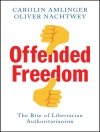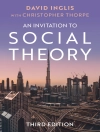The Canadian philosopher Charles Taylor is a key figure in contemporary debates about the self and the problems of modernity.
This book provides a comprehensive, critical account of Taylor’s work. It succinctly reconstructs the ambitious philosophical project that unifies Taylor’s diverse writings. And it examines in detail Taylor’s specific claims about the structure of the human sciences; the link between identity, language, and moral values; democracy and multiculturalism; and the conflict between secular and non-secular spirituality. The book also includes the first sustained account of Taylor’s career as a social critic and political activist.
Clearly written and authoritative, this book will be welcomed by students and researchers in a wide range of disciplines, including philosophy, psychology, politics, sociology, anthropology, cultural studies and theology.
Tabela de Conteúdo
Abbreviations.
Acknowledgements.
Introduction.
1. Linguistic Philosophy and Phenomenology.
2. Science, Action and the Mind.
3. The Romantic Legacy.
4. The Self and the Good.
5. Interpretation and the Social Sciences.
6. Individual and Community.
7. Politics and Social Criticism.
8. Modernity, Art and Religion.
Conclusion.
Notes.
Index
Sobre o autor
Nicholas H. Smith is a Senior Lecturer in Philosophy at Macquarie University, Sydney












